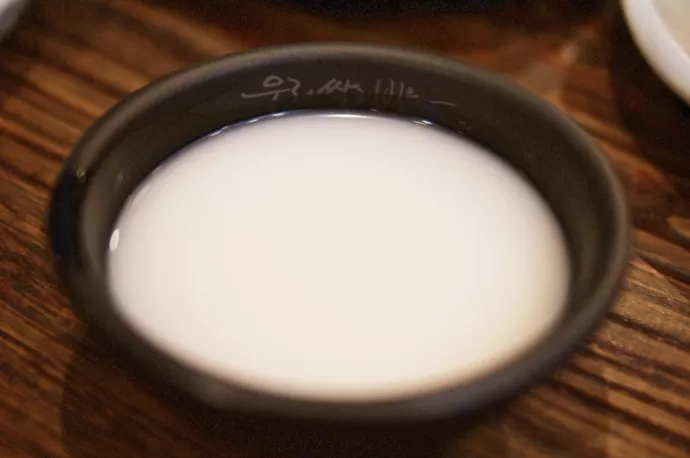
Bittersweet Makoli: Rice Wine and the Memory of Family
Growing up in Seoul, the capital city of South Korea, I often remembered opening the fridge to see what was inside. One staple that never seemed to run out was a bottle of makoli, which was always replenished as soon as the bottle ran low. My father, being a connoisseur of makoli, loved visiting local makoli breweries and sampling their makoli. Makoli is a traditional Korean rice wine with sweet undertones and a smooth finish, and is typically served in a wooden or metal bowl. As a young child, makoli was one of those special, yet somewhat forbidden drinks. But because my father enjoyed drinking makoli so often, he occasionally let me enjoy sips of it when I was with him. I remember what my first sip tasted like; it was a taste that burned as it went down, a foreign taste that was somewhat awkward and hard to get used to.
One day when I was seventeen, my parents approached me and asked if I would like to study abroad in Shanghai. The night before my departure to Shanghai, back in 2008, my parents and I shared a bottle of makoli. This time, the taste of makoli was different, almost bittersweet, because although I was excited about the new opportunities that awaited me, I knew that soon I would be separated from my family. This marked my journey into foreign lands. When I first arrived in Shanghai, the experience felt foreign and awkward to me, just like those first few sips I had of makoli as a child. Every experience was new to me, from the language to the culture; even the air I breathed felt different. However, the more time I spent there, the more I got used to Shanghai.
About a year later, my parents and I decided it would be best for me to continue my studies in Canada. Once I arrived, I encountered challenges similar to those I faced in Shanghai. While I was adjusting to my time in university, I received a letter from the South Korean Military Manpower Administration calling me back for my mandatory military service. I was required to return to South Korea for two years in order to complete my service. While serving in the military, I entered a very sorrowful period. Although I was glad to be back in my motherland, I never had the opportunity to fully enjoy my time there. The pressures of military life made life harder for me and, even though I was back in my hometown, military demands prevented me from seeing my parents. The makoli I drank at this stage in my life burned as it poured down my throat; my drinks were tinged with a deep sadness. I yearned to be discharged from the military.
Once my service was complete, I returned to Canada to resume my studies. I have now successfully assimilated into the Canadian way of life. Recently, my parents flew over to Canada from South Korea. While they were here, we enjoyed many bowls of makoli together. This time, the makoli I drank with them tasted different — it had a warmth and smoothness to it which I had not noticed before. The sweet, tingly taste of makoli flooded my thoughts with vivid memories of my childhood.
As I drank another bowl of makoli, I realized that the taste of makoli had never really changed; instead it was my response to makoli that had changed over time through the many phases of my life. In that sense, makoli symbolizes the transitions of my life, my own right of passage from childhood into adulthood. Now whenever a bowl of makoli is pressed to my lips and that sweet nectar flows into my body, I deeply savour that once foreign and awkward taste, while also swallowing the tears caused by my memories of nostalgia, sorrow, and loneliness. This growing appreciation for makoli allows me to look back on how much I have grown from that little boy taking his first bitter sips by his father’s side into the man I am today. With every drink I take, I am filled with a sense of excitement towards the unknown and the new journeys I will embark on.
Won Ki Lee is an international student who flew over from South Korea and who is a passionate social science student at UTM.
If you want to try makoli in Greater Toronto area, Won Ki recommends Mandoohyang in Mississauga and Korean Village Restaurant in Toronto.
For those of you who want to know more about transnational Korean young men and male conscription in South Korea, check out the following article:
